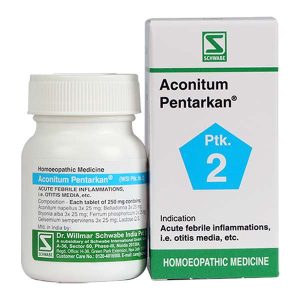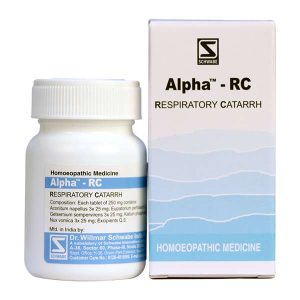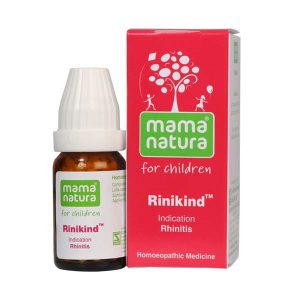
Sneezing
-
-18% Out of stock
 Rated 5.00 out of 5 based on 2 customer ratings(2)
Rated 5.00 out of 5 based on 2 customer ratings(2)₹195.00₹159.90 You Save: ₹35.10 (18%)Out of Stock -
-18%
 Rated 4.60 out of 5 based on 5 customer ratings(5)
Rated 4.60 out of 5 based on 5 customer ratings(5)₹210.00₹172.20 You Save: ₹37.80 (18%)Add to cart -
-18%
 Rated 5.00 out of 5 based on 3 customer ratings(3)
Rated 5.00 out of 5 based on 3 customer ratings(3)₹210.00₹172.20 You Save: ₹37.80 (18%)Add to cart -
-18%

Showing all 4 results
Sneezing is a powerful involuntary act to get rid of the irritants from the airways (nose or throat). It is a sudden convulsive expulsion of air without warning. Sternutation means the act of sneezing.
It usually does not impose any serious threat to health although it can be quite annoying. It can occur on exposure to allergens, change in temperature, sudden exposure to bright light, or viral infection. It can lead to the spread of disease as while the act of sneezing foreign particles or irritants, bacteria and viruses are expelled along with the mucus to cleanse the nasal cavity.
The act of sneezing
During the act of a sneeze, the soft palate and uvula depress and the back of the tongue elevates. This leads to the partial closure of the passage to the mouth, therefore the air is dispersed from the lungs may be forcefully projected out through the nose and mouth. This degree of force applied in the act of sneezing varies.
However, it is interesting to know that sneezing cannot occur during sleep because of REM atonia. REM atonia means motor neurons in the body cannot be excited by any stimulus, therefore, no message is transferred to the brain. But a forceful stimulus can wake a person from sleep to sneeze.
What causes sneezing?
Apart from breathing nose has to keep the bacteria and foreign body out while inhaling the air. The mucus and cilia trap any foreign body, dirt or bacteria entering through the nose. Sometimes these invaders irritate the sensitive mucous membranes of the airways. This irritation leads to the act of sneezing.
What triggers sneezing?
- Allergens: pollen, mold, animal danders
- Viruses, and bacteria (like the one responsible for the flu or common cold)
- Chemical irritants
- Inhalation of corticosteroids through a nasal spray
- Drug withdrawal
- Change of temperature.
- Less common causes include: trauma to the nose, inhaling nasal irritants, like dust, smoke, and pepper, breathing cold air.
Symptoms of sneezing depend on its cause. The symptoms of sneezing may include burning, itchy, or watery eyes, runny nose, nasal congestion, nasal congestion, sore throat, cough, or fever, and chills.
Allergies
Sneezing is very common and frequent to the people who are already very sensitive to allergies. Allergy is a hypersensitivity reaction of the body to deal with the invading foreign organisms. Under normal circumstances, it is a body’s defense to protect from harmful disease-causing bacteria. Most of the time, the body identifies harmless organisms as a menace. Allergies can cause you to sneeze when your body tries to expel these organisms.
Sinus infection. also known as sinusitis. Sudden spasmodic sneezing can occur as a consequence of sinus infection. The two major forms of sinus infections: acute and chronic.
Sinus infection can be viral, bacterial or fungal. It can be a rebound effect of decongestant nasal spray over the years. The overuse of nasal congestion can lead to almost chronic nasal blockage.
Symptoms include blocked stuffy nose, headache, pain around the maxilla, runny noses, and sneezing.
Diagnosis and test
Allergy tests, blood test combined with a detailed medical history, to identify the specific things that trigger allergic reactions and infection, if any.
Prevention
Normally, a single sneeze is no big deal. But when a sequence of sneeze sets that can’t be controlled may require over-the-counter help or medication. Some tips that can prove a useful alternative. First and foremost is to avoid the things that trigger your sneezing by making some simple changes in your surroundings to reduce irritants.
- By changing the filters of the furnace of the home to keep the filtration system working properly.
- Don’t pet animals if you’re allergic to animal dander
- Vacuum and dust frequently
- Avoid traveling while the weather is changing
- If dry air bothers you, use a good humidifier
- Avoid travelling to areas with high pollen counts
- Wash linens in very hot water to kill dust mites
- Avoid industrial and agricultural zones
- Stay hydrated by drinking plenty of water
- Give proper rest to the body so it can recover faster
Conventional treatment: Antihistamines, anti-allergic medications are loratadine and cetirizine, allergy shots and antiviral medication are used to speed up the recovery time.
Homeopathic treatment
Rinikind: It effectively controls inflammation of nasal passage due to an infection or allergic rhinitis. Checks sneezing and watery discharge from nose and eyes. Improves immunity and tolerance to allergies and temperature changes. Removes tenacious mucus in larynx.
Aconitum pentarkan: It relieves sneezing and fever associated with sudden exposure to cold weather, or change of weather, Relieves fever with restlessness and shivering. Effectively relieves dry cough, sneezing, hoarseness, common cold, and associated symptoms. It is also indicated in headache with the heaviness of eyelids, muscular pain and stiffness of neck associated with common cold and flu.
ALPHA- NC: Best used decongest. Effective in lowering the number of sneezing attacks. It provides relief from blocked -stuffed nostrils and helps in clearing the mucus from airways. Also control sneezing, headache, and pain over paranasal sinuses.
ALPHA-RC: It is a combination of medicines effective in controlling nasal catarrh associated with sneezing, and coryza. The combination of medicines is effective in controlling congestion, soreness of chest, headache, and malaise. It covers almost all the symptoms of viral fever. It has a soothing effect by providing relief to the distressed patient. Allergic symptoms like spasmodic contraction of the chest, dyspnea, hoarseness, cough and headache on exposure to stimulants like cigarette smoke, dust, fumes can be effectively controlled
Blog Post


Effects of Diabetes, Smoking, and Other Factors on Sexual Health


Plant-based Protein vs. Animal Protein: Which is Better for Your Health?































